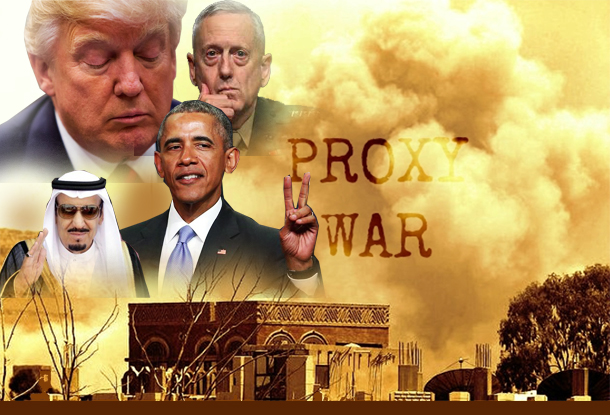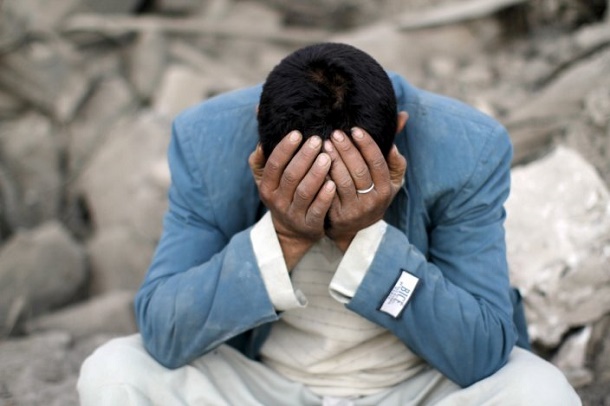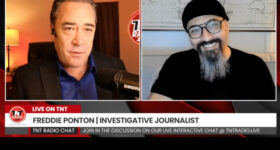
Patrick Henningsen
21st Century Wire
Yemen is proving what should be clear by now: President Trump may never make good on his bold campaign promise of less senseless wars overseas. Watch as Trump defers to ‘the Generals’ to double-down on a bad Obama bet.
This week, we learned that the US Department of Defense, led by General James Mattis, would like to increase its support for Saudi Arabia and its Gulf accomplices, in their effort to continue to further destabilize and bomb Yemen, followed by the installation by force of a US and Saudi-friendly regime in that country.
Following over 2 years of hostilities against Yemen, Mattis has also decided to ask Congress for help in drafting some sort of authorization to give the US some legal standing in its continual involvement with this war. Mattis is erroneously bundling the issue of Yemen into both Syria and Iraq, claiming that this is somehow part of the “the fight against ISIS“.
What is it about Yemen that makes it such a gaping blind spot for members of the US government, its diplomatic corps and the US mainstream media?
Fact: On its face, the joint Saudi-US War on Yemen is illegal under both US and International Law (see US legal analysis below).
With that in mind, shouldn’t every person in the US, from the Obama Administration forward and including the Department of Defense, the Pentagon, the CIA and so on, who has been involved in prosecuting this illegal, undeclared war of aggression – be indicted and charged with high crimes?
Is the United States not a nation of laws, as so many politicians and pundits proudly proclaim to their public over the airwaves each and every day? Are we really a nation of laws?
Or is Washington DC merely a nation of self-inflated, self-reverential hypocrites?
“In a nutshell the Saudis, Emiratis and the USA are inflicting a war of genocide against the Houthis,” – (University of Illinois Professor of International Law, Francis Boyle)
So what is the Trump Administration’s solution to this collapsing situation? Of course, more sanctions.
Because this war was initiated under President Obama, left-leaning and liberal media outlets and Democratic Party operators were bound to an unofficial regime of silence on the issue of Yemen – hence, almost zero media coverage or commentary throughout 2015-2016. It was sufficient to focus only on Syria, and even then to streamline all mainstream media talking points with foreign policy directives from US State Department. With Syria, just look at the media coverage over the last 6 years and overlay it with the US State Department and British Foreign Office narratives. Totally seamless.
For the US political right-wing and the Pentagon-oriented news outlets like CNN, the War on Yemen was simply reduced down to a binary argument, blaming the entire affair on Iran, claiming that the “Iranian-backed Houthis” were the primary antagonists. By framing it in the Iran-centric geopolitical context – and not the true context of US-Saudi aggression and a battle to control some of the regions most lucrative untapped oil and gas reserves – it served to somehow justify the organized, international crime which has been taking place. CNN’s Wolf Blitzer was always careful to inject the correct qualifier (as he always does) of “Iranian-backed Houthis” when covering Yemen. By framing it as an Iranian plot, US neoconservatives also reinforced the operation as “good for Israel,” which by extension means its in US national interest by virtue of the neoconservatives doctrine.
Since the War on Yemen began in March 2015, rather than reporting on the carnage and pressuring the US government to recuse itself from its daily military role backing of Saudi Arabia, the mainstream media foreign policy gatekeepers and CFR members like CNN’s Fareed Zakaria have instead opted to ignore the conflict as much as possible, opting instead to continue pushing more fake news and extravagant lies spun regarding Aleppo along with other aspects of the other illegal US operation arming international terrorists in Syria.
Members of the media should be ashamed of themselves, but that assuming the word shame still exists in their lexicon. By now, it should be clear that they simply do not care.
While the establishment and auxiliary CFR public relations mascots like George Clooney have been crusading for the International Criminal Court (ICC) to ‘take urgent action’ against ‘the bad guys’ in places like South Sudan (a CIA project from the onset) and fawning over the US-UK government joint project and pseudo-NGO fraud known as the White Helmets in Syria, the United States government and its partners Saudi Arabia, the UAE, Bahrain and of the course the United Kingdom – have been allowed to get away with one of the most obvious and egregious, mass violations of international law and collective murder in modern history.
In short, all the establishment and Deep State players; in Washington, the UNHRC (bought-off by Saudi Arabia), the mainstream media, Hollywood, and across the billion dollar think-tank industrial complex – have all colluded through their collective inaction and media censorship – in perpetrating an long-running and obvious international crime against humanity in Yemen. Add to this, holding in contempt the concept of the modern nation-state as it pertains to Yemen, by colluding in a violent, neocolonial fashion with the express intent to deny the Yemeni people their right to sovereignty.
“To compare Saudi Arabia’s belligerent actions in Yemen to Nazi Germany’s undeclared wars of aggression prior to WWII is no exaggeration. In fact, one could make the argument that this Saudi-US joint venture is much worse, and a far more dangerous precedent. Likewise, the failure of a corrupt UN (who effectively sold Saudi Arabia its seat as the head of the UN Human Rights Council ), led by an impotent Secretary General in Ban-ki Moon, to censure Saudi Arabia for its flagrant violation of international law, the Nuremberg Principles and the entire Geneva Convention content and implied framework – leaves the UN in the exact same position as the League of Nations in 1938. This is most certainly the case on paper, and with each passing moment we are nudging ever closer to geopolitical déjà vu.” (Vanessa Beeley, 21WIRE, Oct 13, 2016)
The following is a professional analysis, from a US legal perspective. The case is clear, and non-contestable under the current provision in both US and international law…

Yemeni resident in Taiz, who lost everything after another Saudi airstrike.
The Moral Case for Restraint: U.S. Should Stop Supporting the War in Yemen
.
Trevor Thrall & John Glaser
Reason
After almost a year of bombings, Yemen is a humanitarian catastrophe. Over 6,000 Yemenis have been killed [an extremely conservative estimate] —half of them civilians. According to a recent United Nations report, the Saudi-led coalition has “conducted airstrikes targeting civilians and civilian objects,” including refugee camps, hospitals, weddings, and mosques. Saudi bombing has reduced large tracts of several cities to rubble. Some of the attacks, according to the U.N. panel, could amount to crimes against humanity.
As of this month, over two million people in Yemen are internally displaced, millions lack access to potable water, and thanks to a U.S.-supported Saudi blockade on imports, more than 14 million Yemenis are at risk of starvation.
Throughout, the U.S. has quietly but dutifully lent the Saudis weapons, logistics assistance, and diplomatic cover. It’s time to stop.
The civil conflict in Yemen has its roots in the overthrow in 2011 of long-time U.S.-Saudi ally Ali Abdullah Saleh. In the midst of the unrest, Saudi Arabia and the U.S. supported a political transition to a government headed by President Abed-Rabbo Mansour Hadi, in which he was the only candidate on the ballot. Yemen’s Shiite Houthi rebels waged an insurgency against the Hadi government and captured the capital city Sanaa in 2014.
The civil war then morphed into an intractable proxy war when, in March of last year, Saudi Arabia decided to wage a vicious bombing campaign under the pretext of destroying the Houthi rebellion and reinstating Hadi’s beleaguered government. Riyadh views the Houthis as a proxy of Iran, and after the peaceful diplomatic settlement between the U.S. and Iran over the latter’s nuclear program, U.S. officials have apparently felt obliged to reassure Saudi Arabia by supporting its war in Yemen.
The problem is that Saudi Arabia’s war in Yemen compromises both U.S. interests and its moral standing. Our interests are harmed because undermining the Houthis and contributing to the power vacuum in the country has benefitted the position of al-Qaeda in the Arabian Peninsula (AQAP), which happens to share Saudi distaste for the Houthis.
The Saudis succeed in garnering U.S. support in part by characterizing the war as a fight against terrorism. But the Saudis and al-Qaeda are actually in an awkward alliance in this fight, making U.S. help even more misguided.
As for our moral standing, by supporting Saudi Arabia’s military action, we are a party to serious war crimes and are indirectly at fault for the devastating humanitarian crisis the people of Yemen now face.
The Saudi intervention clearly violates the just war tenet of jus ad bellum. That tenet dictates that nations not only have a just cause for going to war but also resort to military force only after all other options have been exhausted. Despite Saudi claims to the contrary, the intervention is clearly not a case of self-defense. The notion that Yemen, the poorest country in the Middle East (kept afloat primarily by Saudi funds), represents a military threat to Saudi Arabia is absurd. And to argue Saudi bombs are justified to prevent future terrorist attacks is to argue for preventive war, which violates just war theory and the UN Charter.
The Saudis insist that their actions are legal because the legitimate Yemeni government invited military intervention. But the Hadi government hardly deserves the label legitimate. Hadi was elevated to the presidency after serving in Saleh’s autocratic regime as vice president. Once president, Hadi used his position to consolidate power against the Houthis and Saleh loyalists all while misappropriating billions of dollars. A better description would be to call the Hadi government a tool of Saudi Arabia, since Saudi Arabia not only brokered the deal that allowed him to replace Saleh but also enabled him to return to Yemen after the Houthis drove him from the country. Arguing that the Saudis are responding to a call for help is essentially to argue that the Saudis asked themselves to intervene in Yemen.
So, if Saudi Arabia’s argument for intervention is weak, what’s the U.S.’s excuse? Any claim that this is a part and parcel of the war on terror is dubious, considering the bombing of Yemen is, if anything, bolstering Islamic extremists. Furthermore, Saudi Arabia itself is a major exporter of the kind of jihadist ideology that drives groups like al-Qaeda and the Islamic State.
Even if it were about countering terrorist groups, if the threat to Saudi Arabia from Yemen is remote, the threat to the United States is certainly too small to justify violating the rules of war, international moral norms, and common decency.
Beyond placating overexcited Saudi fears of a U.S. strategic tilt towards Iran, there simply is no moral, legal, or strategic justification for what the U.S. is doing in Yemen.
About the Authors: Trevor Thrall is an associate professor at the School of Policy, Government, and International Affairs at George Mason University and a senior fellow at the Cato Institute. John Glaser is based in Washington, DC. He has been published in CNN, Newsweek, The Guardian, and The National Interest, among others.
READ MORE YEMEN NEWS AT: 21st Century Wire Yemen Files
SUPPORT OUR WORK BY SUBSCRIBING & BECOMING A MEMBER @21WIRE.TV














